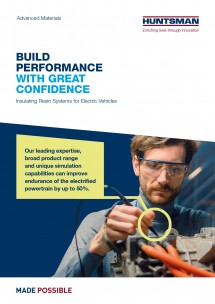Thermosets such as epoxies and polyurethanes are used to protect electronic devices against chemical, mechanical and electrical loads.
Extreme temperature is by far the most common stress applied to electronic devices. The ability of parts to withstand thermal shocks can be enhanced by selecting a resin with the correct coefficient of linear thermal expansion (CTE) and an optimal thermal endurance profile, in particular for high-temperature applications.
Epoxy resins are proven for long-term thermal endurance. Polyurethane systems are also available, offering thermal endurance profiles above 100° C and flexibility at low temperatures.
Chemical resistance of thermosetting resins is strongly related to the cross-linked density of the polymer network. As a rule of thumb, the harder the material, the better the chemical resistance.


